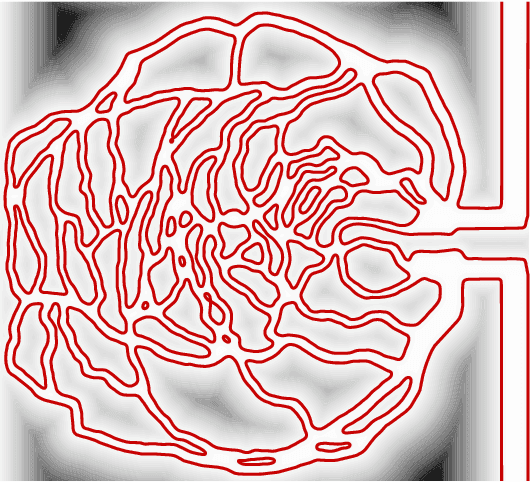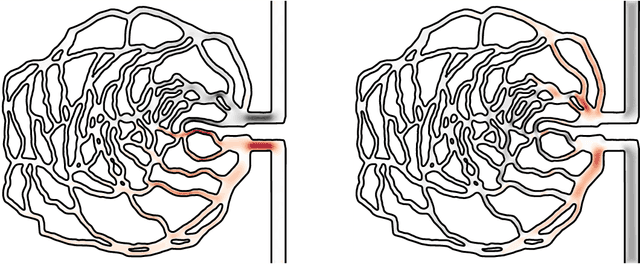Get our free extension to see links to code for papers anywhere online!Free add-on: code for papers everywhere!Free add-on: See code for papers anywhere!
Lucas Amoudruz
Path planning of magnetic microswimmers in high-fidelity simulations of capillaries with deep reinforcement learning
Mar 29, 2024Figures and Tables:







Abstract:Biomedical applications such as targeted drug delivery, microsurgery or sensing rely on reaching precise areas within the body in a minimally invasive way. Artificial bacterial flagella (ABFs) have emerged as potential tools for this task by navigating through the circulatory system. While the control and swimming characteristics of ABFs is understood in simple scenarios, their behavior within the bloodstream remains unclear. We conduct simulations of ABFs evolving in the complex capillary networks found in the human retina. The ABF is robustly guided to a prescribed target by a reinforcement learning agent previously trained on a reduced order model.
Via
 Add to Chrome
Add to Chrome Add to Firefox
Add to Firefox Add to Edge
Add to Edge